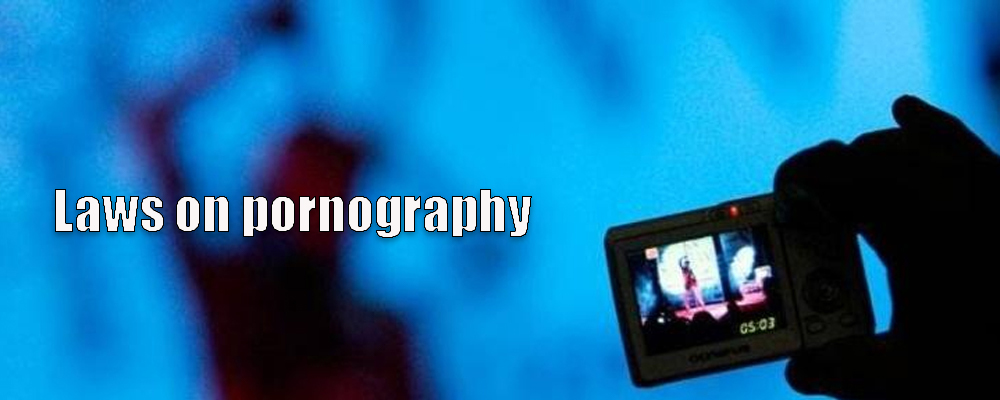The term “pornography” is the definition of sexual actions in order to produce sexual excitement through books, films or any other ways. Pornographic material created via computer technology and use of the internet to download and transmit obscene material such as films, texts and photographs etc. Watching porn privately in India does not constitute any offence.
Laws on Porn:
Laws specify the events that attract punishment, they do not define “pornography”specifically. It is uncertain to decide whether a person’s activities, such as the ownership, creation, or distribution of obscene content, are illegal or not, because all pornographic material is not obscene. The two terms have different subjective meanings and have changed over time with changing society and mindsets.
Need A Legal Advice
The internet is not a lawyer and neither are you. Talk to a real lawyer about your legal issue

Information Technology Act, 2000:
Section 66E of IT Act states that if any person transmits photographs of private parts of any person then he or she shall be punishable by fine of two lakh rupees or three years of imprisonment.
In Justice K. S. Puttaswamy (Retd.) and Anr. v. Union of India and Ors (2018), it was held that right to privacy was a basic right and is safeguarded under Right to Life.
According to Section 67A, publishing or mailing anything that shows sexually explicit activities or behaviour is illegal and is punished by up to five years in prison or ten lakh rupees in fines.
Indian Penal Code:
Section 292 & Section 293 of IPC makes it illegal to sell, distribute and exhibit obscene objects.
In the State of Punjab V. Major Singh held, “that any conduct done to or in presence of a woman that is indicative of sex in the eyes of humanity is punishable with one year of jail and fine.”
POCSO Act:
Section 2(d) of the Act, deals with sexual offences against children, and a kid is defined as a person under the age of 18. Section 14 (1) mentions five years imprisonment and fine for using any child or minors for pornographic purposes.
Women’s Indecent Representation Act of 1986:
This Act forbids indecent representation of women in ads, publications, writings, paintings and figures and other forms.
Legality of Porn:
Chief Justice H.L. Dattu, in 2015 orally stated, “viewing porn in a private room may fall under the Constitution’s Right to Personal Liberty. As a result, no authority can take it away from someone, so long as one is watching porn movies in one’s own home, which is perfectly legal. Although if it is watched in a private area, watching or storing pornographic content that portrays child pornography, rape, or violence against women is illegal.”
It can be understood as:
- Moral values are added in this and segregated as: i.) Should I watch? ii.) Should I not watch
- Why the porn is made and by whom?
- Is the porn industry related to human trafficking and sexual acts against women?
However, pornography may or may not be obscene or sexually explicit and every obscene or sexually explicit work or material will always be a subset of pornography, in this regard you can ask your legal question with the expert team of Lead India.





 Talk to a Lawyer
Talk to a Lawyer